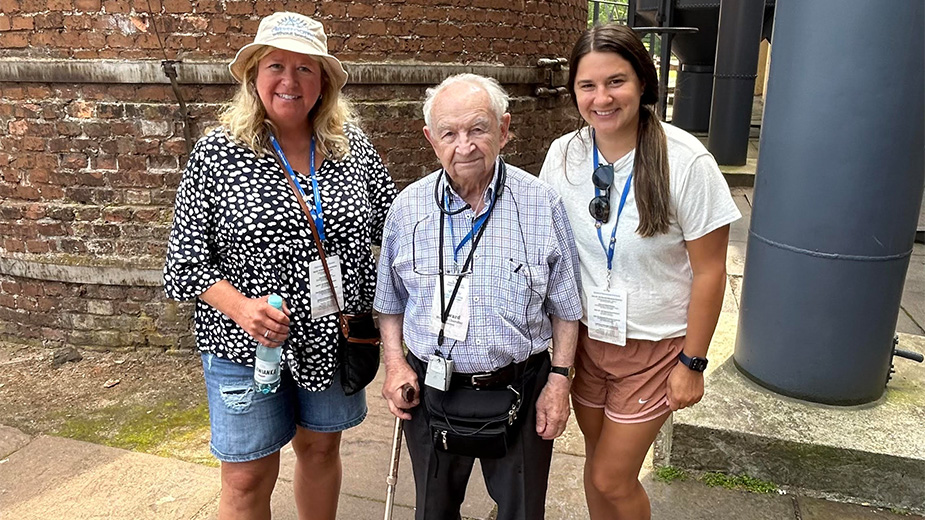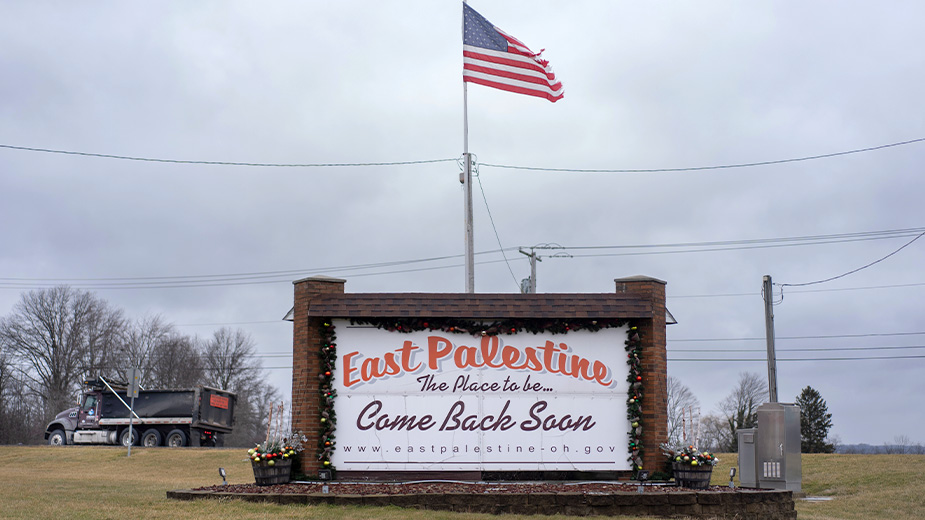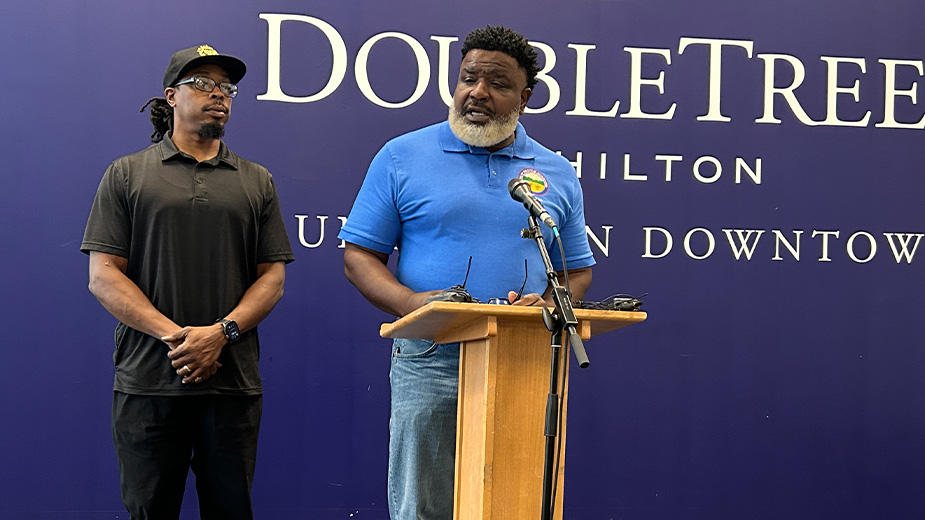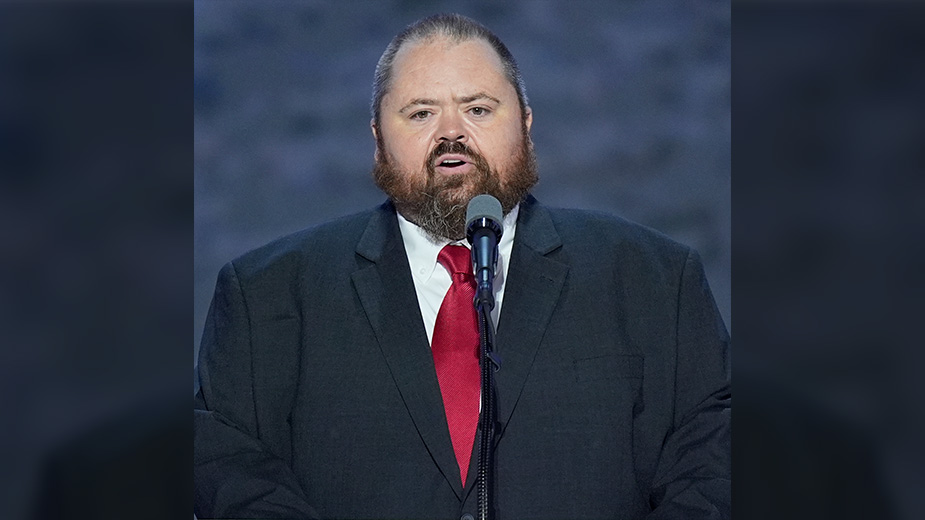Teachers Discover Hope While Visiting Darkest Holocaust Sites
YOUNGSTOWN, Ohio – At the end of a long day of touring Auschwitz, one of the sites of horrific acts committed against his own family and neighbors, Howard Chandler danced after the Shabbat dinner that night.
The irony was not lost on Dana Safarek, one of three local teachers who traveled to Poland with the Classrooms Without Borders program.
Chandler’s actions brought her to tears.
“It was kind of that moment of [loving] life,” Safarek said. “Howard did not let these horrible, horrible things define him.”
Chandler took about 50 educators and other survivors back to Poland to visit Auschwitz, Treblinka and Majdanek, as well as the town where he lived as a child and other places he still remembers well so many years after World War II. They stood at the sites of ghettos in the heat and listened as Chandler told them what happened to people he knew there. He was held in Auschwitz. He lost his mother, brother and sister at Treblinka.
“Howard is incredible, and what makes that trip so unique is that it is not going to last that people are going to be able to take that trip with a survivor,” Safarek said. “Howard is 95 years old, so the opportunity that we had to do that, I can’t even put into words.”
Safarek, a Boardman High School teacher, said she also hopes to use what she learned in Poland as she talks to her journalism students about inaccuracy and distortion. She also plans to help team-teach an elective Holocaust Studies class with another Boardman teacher, Randy Nord, who also attended the program.
“Howard was such an inspiration,” Nord said. “I can’t even explain being with somebody like that. And who’s, despite all of that, a really positive, joyous man. That amazes me.”
The challenge will be narrowing down all they learned into a semester-long class. Nord, who also teaches AP English, may take her cues from Chandler.
“Learning about good people who risked a lot to help people, those are good stories,” Nord said. “Survivor stories like Howard’s.”
Nord pointed to a story also mentioned by another educator on the trip, Ira Pataki, a Sharpsville Middle School teacher, who talked about a child pediatrician who also ran an orphanage and ended up dying in Treblinka because he would not leave those children.
“The unknown person inside each child is the hope for the future,” Pataki quoted the man.
Nord related the story of a Polish pharmacist who let people hide in the back of his business and gave them hair dye to change their appearance so perhaps they would not look Jewish. She also notes others in Poland were not helpful and many continue to deny what happened.
“To go to these monuments, where in the United States they would be crowded, they were not really crowded,” Nord said, stating people continue to live in areas and homes where historic events occurred, places that feel like they should be historic sites.
“It’s key to keep their stories alive,” Nord said. “So I think reading diaries and memoirs is vital.”
She also will be encouraging her students to guide her about what fascinates them about the topic and explore what they want to learn about. She wants the students taking the newly formed class to share what they learn, create a project to present to other students or write about the helpers, the people who stood up for others despite the grave danger to themselves.
Some of what the students write will be submitted to the Jewish Community Relations Council’s writing contest.
Pataki said while they may not be ready to learn details about the Holocaust, middle school students have a strong sense of fairness. The ideas of ghetto and families being separated is a concept Pataki said makes an impact on seventh and eighth grade students.
“As horrific as it is, they can understand how if you put up a wall in a city and there are people behind it and there are people on the other side living life normally, while other people are scrounging and scavenging, those are things that you can teach those fundamental lessons – how would you deal with it,” Pataki said.
Pataki, whose family came from Poland, has had students participate for the past decade in the International Book Sharing/Shared Reading Program through The Center for Holocaust and Humanity Education and the Youngstown Area Jewish Federation. His students have focused on texts that included what it was like for children to function and survive in the ghetto, while in many cases existing on hope.
“The messages were always positive,” Pataki said. “It’s not that it is unrealistic – it’s age appropriate, and I think is a good bridge to the more disturbing questions.”
Pataki said it is important for students to learn that everyone matters. During the trip, Pataki said a road was being built, but the entire project was redirected after a mass grave was found in the middle of the construction site. A monument was being erected at the site.
“I remember walking back to the bus and thinking what a remarkable victory to have the road redirected and have the marker in place,” Pataki said, but two younger students on the trip were outraged that more was not being done. Pataki notes that fire gives him courage that there will be a better and more tolerant future ahead.
This was the second year the organization has sponsored the trip for three area teachers through the Pittsburgh-based Classroom Without Borders program. After sending three the past two years, they hope to send five next year.
Nord said she encourages other educators to go and added many would not be able to afford it without the sponsorship.
Pictured at top: Dana Safarek, Howard Chandler and Randy Nord while visiting the sites in Poland.
Copyright 2024 The Business Journal, Youngstown, Ohio.



